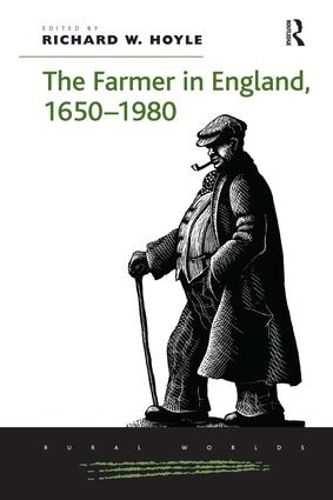Readings Newsletter
Become a Readings Member to make your shopping experience even easier.
Sign in or sign up for free!
You’re not far away from qualifying for FREE standard shipping within Australia
You’ve qualified for FREE standard shipping within Australia
The cart is loading…






Farmers held a pivotal role in the capitalist agriculture that emerged in England in the eighteenth century, yet they have attracted little attention from rural historians. Farmers made agriculture happen. They brought together the capital and the technical and management skills which allowed food to be produced. It was they - and not landowners - who employed and supervised labour. They accepted the risk inherent in agriculture, paying largely fixed rents out of fluctuating and uncertain incomes. They are the rural equivalent of the small businessman with his own firm, employing people and producing for markets, sometimes distant ones.
Our ignorance of the farmer might be justified by the claim that they are ill-documented, but in fact farmers were normally literate and kept records - day books, journals, accounts. This volume goes some way to counter the claim that a history of the farmer cannot be written by showing the range of materials available and the diversity of approaches which can be employed to study the activities and actions of individual farmers from the sixteenth century onwards. Farm records offer invaluable insights into the farming economy which are available nowhere else. In this volume accounts are used in a variety of ways - as the means to access single farms, but also in gross, as a national sample of accounts, to reveal regional variation over time. For the later nineteenth and twentieth centuries the range of sources available increases enormously and farmers - indeed farmer’s wives too - emerge as articulate commentators on their own position, using correspondence to outline their difficulties in the First World War. Some even developed second careers as newspaper columnists and journalists. This book focuses attention back on the farmer and, it is hoped, will help to restore farmers to their rightful position in history as rural entrepreneurs.
$9.00 standard shipping within Australia
FREE standard shipping within Australia for orders over $100.00
Express & International shipping calculated at checkout
Farmers held a pivotal role in the capitalist agriculture that emerged in England in the eighteenth century, yet they have attracted little attention from rural historians. Farmers made agriculture happen. They brought together the capital and the technical and management skills which allowed food to be produced. It was they - and not landowners - who employed and supervised labour. They accepted the risk inherent in agriculture, paying largely fixed rents out of fluctuating and uncertain incomes. They are the rural equivalent of the small businessman with his own firm, employing people and producing for markets, sometimes distant ones.
Our ignorance of the farmer might be justified by the claim that they are ill-documented, but in fact farmers were normally literate and kept records - day books, journals, accounts. This volume goes some way to counter the claim that a history of the farmer cannot be written by showing the range of materials available and the diversity of approaches which can be employed to study the activities and actions of individual farmers from the sixteenth century onwards. Farm records offer invaluable insights into the farming economy which are available nowhere else. In this volume accounts are used in a variety of ways - as the means to access single farms, but also in gross, as a national sample of accounts, to reveal regional variation over time. For the later nineteenth and twentieth centuries the range of sources available increases enormously and farmers - indeed farmer’s wives too - emerge as articulate commentators on their own position, using correspondence to outline their difficulties in the First World War. Some even developed second careers as newspaper columnists and journalists. This book focuses attention back on the farmer and, it is hoped, will help to restore farmers to their rightful position in history as rural entrepreneurs.